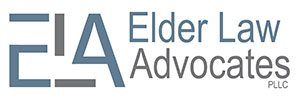 Two common estate planning documents are wills and trusts. We use them because we can’t be sure what the future holds. A severe accident or illness can happen at any time, and we will eventually die. We all hope to grow old and die of natural causes at an advanced age, but many people die prematurely.
Two common estate planning documents are wills and trusts. We use them because we can’t be sure what the future holds. A severe accident or illness can happen at any time, and we will eventually die. We all hope to grow old and die of natural causes at an advanced age, but many people die prematurely.
A will lets you choose the executor of your estate, who will manage your assets, pay debts, and distribute the property as specified. In a will, beneficiaries and guardians for minor children can be assigned. You can also explain details about your funeral and burial.
Setting up a trust can be beneficial for the distribution of specific assets or pieces of property. An advantage of a trust is that it doesn’t go through probate, like a will. Property is still distributed by your assigned trustee without the need for court proceedings which allows more privacy.
More comprehensive asset protection before and after your death is accomplished with living revocable trusts and irrevocable trusts designed to achieve specific goals to preserve and protect assets during your lifetime and control what happens to them after your death. You may be looking for unique tax advantages or sheltering countable assets when applying for government benefits.
Both wills and trusts become part of a more comprehensive estate plan by adding a few more documents to your plan:
- Living will
- Physician’s Directive
- Powers of Attorney
A living will outlines your wishes for end-of-life medical care. You determine what medical treatments can be used to make you comfortable. This removes the responsibility from family members during a difficult time. Your named healthcare surrogate can relay this information to family and healthcare professionals.
A physician’s directive (advance directive) allows you to instruct healthcare professionals in a medical crisis. Let everyone know your preferences on lifesaving treatment, artificial food, and hydration if you are unable to communicate your wishes.
Powers of attorney can be used for financial and medical purposes. A healthcare power of attorney or surrogate can inform family and healthcare professionals about your wishes contained in your living will and advance directives. They can legally make medical decisions based on those instructions. A financial power of attorney lets a designated person make decisions regarding your financial matters.
Communicate your wishes to the people you love and ensure they have instructions to follow in emotional situations.
Kentucky and Tennessee Probate
The probate process covers the legal process necessary to settle a person’s estate. An appointed representative, usually a family member or named executor, opens the case in court. The court helps them work through all of the financial business that was left behind. This includes disposing of property and assets and paying any debts. A comprehensive estate plan can protect your family, money, and property from the expensive costs and legal battles that can happen in probate court. Even if you are well-prepared, an experienced attorney can guide you through probate or take over, so your family is free to grieve and move on.
Many people believe that it is crucial to avoid probate. But they aren’t sure why it can be a problem or how to avoid it successfully. Here are a few reasons to avoid probate:
A lack of privacy – Probate makes the terms of your will accessible in a public court proceeding.
Family disagreements – All interested persons can present a claim to challenge or contest a will. Complex family dynamics can lead to arguments and extend the probate process by months or years.
Time-consuming – Court proceedings take considerable time, especially with complex estates. The family waits for the process to be completed before receiving their inheritance. During that time, assets can diminish in value.
Costly – Probate requires court appearances and extensive paperwork. Legal fees can mount up quickly without professional guidance.
A trust is one of many ways we can help you avoid probate. We work with you and your loved ones to draft the proper legal documents and carefully time asset transfers during your lifetime. You appoint a trustee to manage the trust property and any distributions after your death without the need for probate.
Some assets avoid probate by designating beneficiaries:
- Jointly owned property is passed automatically to the joint owner.
- Payable-on-death accounts transfer to a named person.
- Transfer-on-death accounts change ownership of titles and deeds to a designated person.
You never know what could happen tomorrow, which is why it’s so important to secure your family’s future today. Our experienced attorneys are ready to help you develop a legal trust, custom-tailored to your specific needs. Whether your estate is complex or simple, we can help you.
Contact us or call (270) 483-3001 if you live in Elkton, KY, and surrounding counties, including the Clarksville, TN, area. We help to preserve your wealth, protect your family, and create your legacy.
